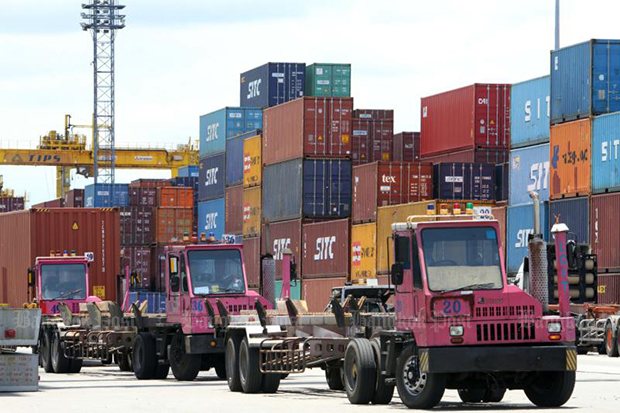
Thailand's economy grew at its slowest pace in more than four years in the first quarter, and by less than expected, thanks to a drop in exports and public investment.
The state planning agency, reporting January-March data on Tuesday, cut its forecast for 2019 growth to 3.3-3.8% from the 3.5%-4.5% range seen in February. And it lowered its estimate for this year's exports, the main growth driver.
The outlook downgrade came amid rising global trade tensions and lingering political uncertainty at home as political parties are still vying to form a new government - likely to be a fragile one - after a March 24 election.
"The economy slowed markedly in Q1 on the back of rising external headwinds and high political uncertainty," said Charnon Boonnuch, a Nomura economist in Singapore.
For now, Nomura is keeping its full-year growth forecast of 3.4%, though "the balance of risks remains tilted to the downside", he said.
With GDP data from Singapore and Thailand on Tuesday, every major Southeast Asian economy has reported slower annual growth in the first quarter than in 2018's last three months, rooted in the US-China trade war and a global growth slowdown.
Thailand, the region's second-largest economy, reported first quarter growth of 2.8% from a year earlier - the smallest since 2014's final period.
That was slower than 3.0% seen in a Reuters poll and the revised 3.6% pace for October-December.
On a quarterly basis, growth was a seasonally adjusted 1.0%, weaker than poll's 1.4% forecast and the October-December quarter's revised 0.9%.
The National Economic and Social Development Council cut its 2019 export growth outlook to 2.2% from 4.1%. Thailand's exports, worth about two-thirds of the economy, dropped 3.6% in the first quarter from a year earlier. In 2018, they rose 7.2%.
The agency said growth should improve in the second half as exports are expected to gradually recover.
Also impacting the growth pace is that slowed gains for tourism and high household debt has curbed consumer spending.
In the March quarter, private consumption rose 4.6% from a year earlier and private investment increased 4.4%, but public investment fell 0.1%, NESDC data showed.
In January-March, the number of foreign tourists rose 1.5% from a year earlier, compared with a 4.3% rise in the previous three months.
As risks increase and inflation is benign, most economists expect the Bank of Thailand (BoT) to keep its policy rate unchanged at 1.75% for the rest of 2019. The BoT will next review monetary policy on June 19.
Given the growth rate, "it is most likely monetary policymakers will stay pat on rates until there is clarity on both the external and internal fronts, such as the formation of the next government," said Kobsidthi Silpachai, head of capital markets research of Kasikornbank.